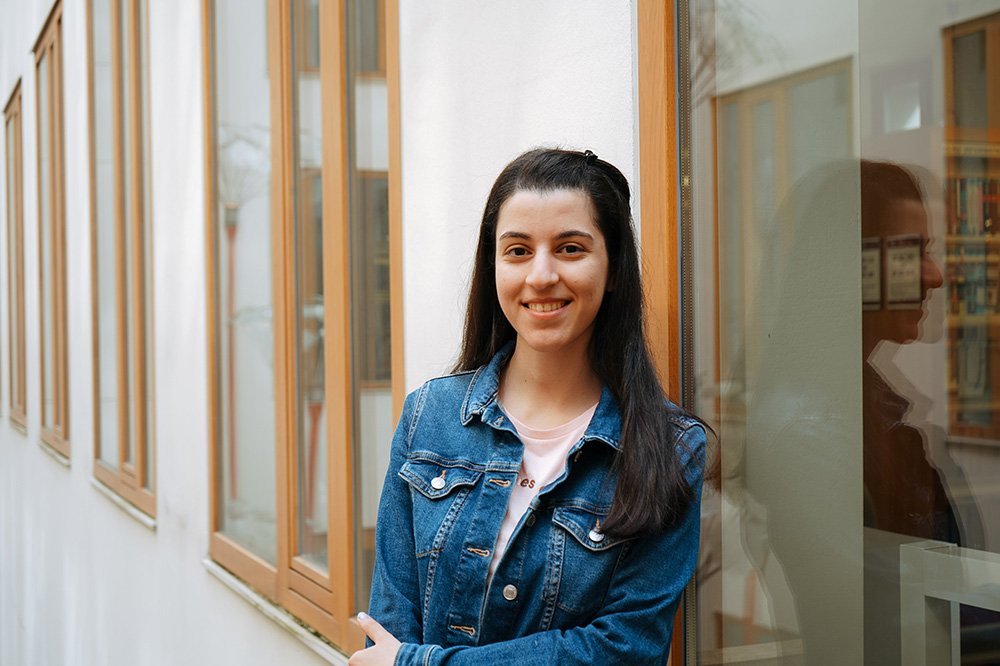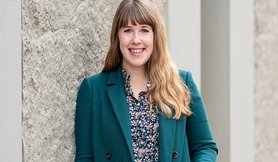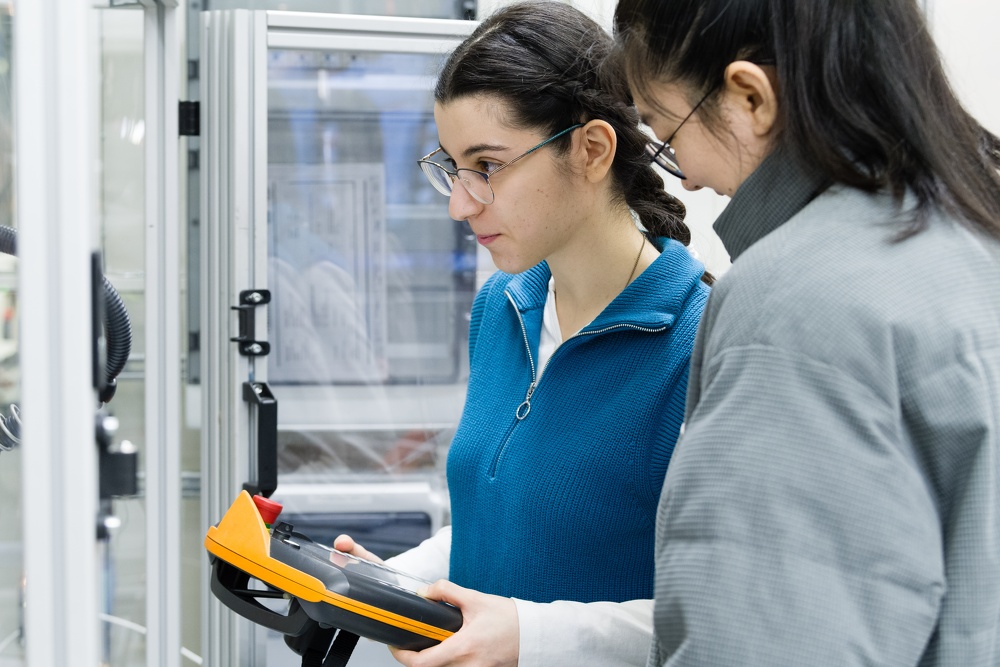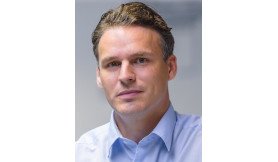
Yara about her degree programme in Production Engineering
The student is now in her final year of the Production Engineering programme at the Faculty of Mechanical Engineering. She has always been interested in science and, with the encouragement of her teachers, decided in favour of a technical degree. In this interview, she explains why a degree programme that combines theory and practice is just right for her.
You came to Germany from Syria in 2016. Can you tell us something about your life in your home country and how you arrived here?
I went to school in Syria until the 10th grade and spent the last six months at home because my parents were afraid for us when the war started. I wasn't the best at school, but I was very good in the subjects I liked. These were mainly chemistry, maths, philosophy and art. Drawing, logical thinking and reasoning were the subjects I always enjoyed learning the most. From my point of view, the German school system is very much geared towards motivation and encouraging interests, and I was very well supported and looked after here. Unfortunately, I didn't experience that in my home country, but that was precisely what motivated me to continue studying here after school.
I first attended a German course for a year, then another year in a preparatory class for German and basic technical subjects. After that, I completed my advanced technical college entrance qualification at the BSZ für Technik in Dresden and transferred directly to the HTWD.
How do you like Dresden?
I still remember the day I arrived in Dresden exactly eight years ago. It was cool and it rained lightly all day - my favourite weather - and it was so quiet that you could listen to the rain. My favourite place to be was in the forest or in the mountains. I lived near a large park at the time and went for a walk there almost every day. I love nature and that's why Dresden was my favourite of all the places I saw in Germany.
What experiences did you have as a student from Syria at our university?
From my point of view, I hardly noticed that I was "different", I mean that both my fellow students and my professors spoke to me in the same way as they did with everyone else. When I needed more explanation, they helped me with a lot of patience.
The robotics course offers the opportunity to work with various KUKA robots, programme them yourself and work on and implement various projects in a team. You shouldn't miss out on this.
Was there a favourite project that you particularly enjoyed?
I would describe the project in the first semester as my favourite project. Individual projects are developed in teams using an Arduino kit. This gives you a first impression of what is possible in electrical engineering.
What does your typical day at university look like?
A typical day for me consists of attending lectures and tutorials, followed by lunch in the canteen with my fellow students. In the afternoon, there are often more lectures or internships. Of course, there are also meetings with friends and sporting activities to balance out my studies.
What career prospects do graduates of an electrical engineering degree programme have?
The electrical engineering degree programme is a foundation course. It offers job opportunities in various fields such as robotics, the automotive industry or the printed circuit board industry. Here in Dresden and the surrounding area in particular, there are numerous opportunities and a wide range of jobs on offer. Initial contacts with companies can be made at the university's career fair.
How important is the practical application of what you have learnt on your degree course?
The constant alternation between theory and practice makes time pass quickly. When you learn what all the long formulae are good for and apply them in practice, it's easier to understand them. On my Production Engineering degree programme, for example, we learn many ways of identifying and rectifying faults or measuring procedures. The best way to memorise these is to apply them in practice and see for yourself what difficulties there are and how precise they have to be. In my opinion, a major advantage is that you learn how to put what you have learnt into practice, which many people who only have the theory find difficult at the beginning. Here at the HTWD, we get used to it during our studies, which makes it easier for us to start our careers.
What do you do after graduation? What are the career prospects for graduates?
Unfortunately, I'm not yet used to thinking that far into the future, but I can already say that after graduation I plan to continue my education while working and pursue what I enjoy.
What is your favourite thing to do in your free time?
I live with my parents and have been spending most of my free time in our allotment garden for a year now. I've also started learning the piano in my spare time, practising my drawing and have been trying to improve my Italian for a while now. Although I don't officially have a part-time job, I interpret for my family. 😊
What was your favourite moment at HTWD?
Returning to the 6th semester after the practical semester. You could see from your own experience how important and interesting the material you learnt can be and had a great opportunity to collect examples of possible practical problems or problems that you can now learn to solve better. I also realised later on how nice it is to spend time in the library.
Find out more
Weitere Dokumente/ Antragsformulare finden Sie hier: https://www.htw-dresden.de/en/hochschule/aktuelles/translate-to-english-news
Contact
M.A. Mira Höfler
- Z 124
- +49 351 462 3519




